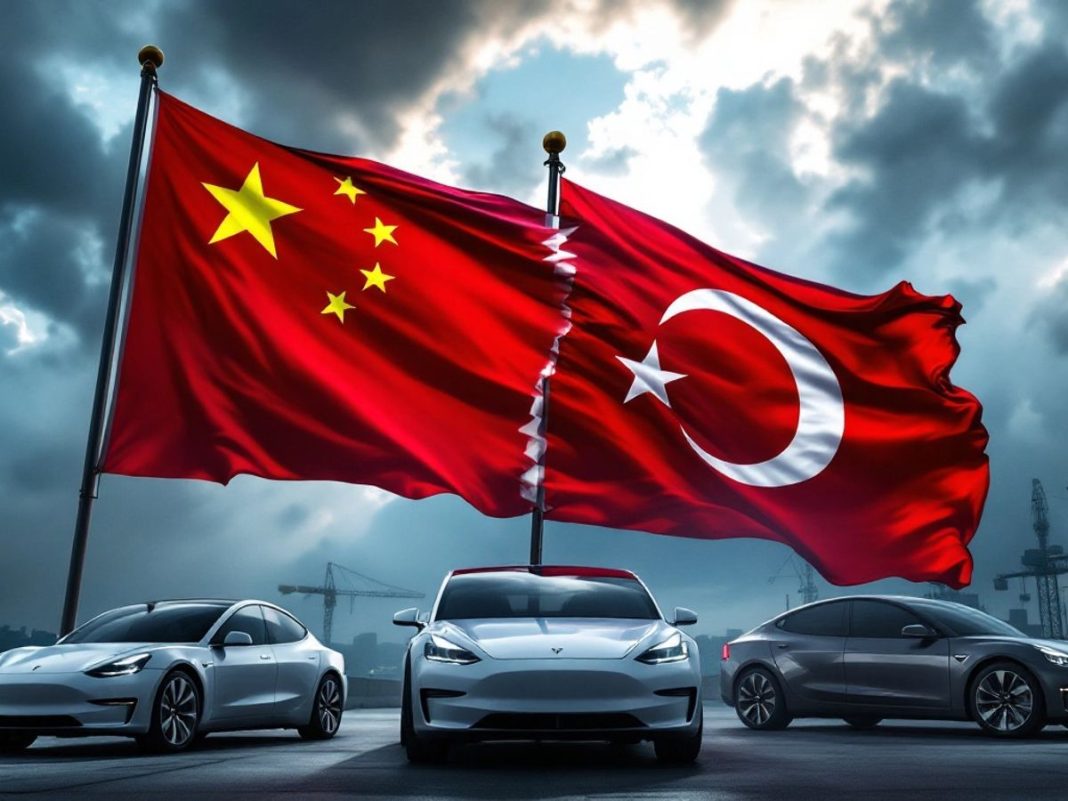China has initiated a trade dispute against Turkey at the World Trade Organization (WTO) concerning tariffs imposed on electric vehicle imports. This move comes amid rising global tensions over trade practices related to electric vehicles, particularly as China faces scrutiny over its export subsidies.
Key Takeaways
- China has filed a complaint against Turkey at the WTO regarding electric vehicle tariffs.
- Turkey imposed a 40% additional tariff on Chinese vehicles in June.
- The dispute highlights growing international tensions over electric vehicle trade practices.
Background of the Dispute
On October 8, 2024, China’s diplomatic mission announced its formal complaint against Turkey, asserting that the tariffs violate WTO rules and are protectionist in nature. The statement emphasized the need for Turkey to adhere to international trade regulations and rectify its measures.
In June, Turkey announced a significant 40% additional tariff on electric vehicles imported from China. This was followed by stringent conditions imposed on the import of plug-in hybrid vehicles, further complicating trade relations between the two nations.
China’s Position
China’s complaint is part of a broader strategy to address what it perceives as unfair trade practices against its electric vehicle industry. The country has been facing increasing pressure from various nations that argue its electric vehicle exports are heavily subsidized by the government, which they claim distorts market competition.
The Chinese government has urged Turkey to reconsider its tariffs, framing them as discriminatory and contrary to the principles of free trade. This complaint marks the first formal step in a potential trade dispute, which could lead to consultations between the two countries under WTO guidelines.
Turkey’s Response
As of now, the Turkish government has not publicly responded to China’s complaint. However, Turkey has been actively seeking to strengthen its ties with Chinese automotive manufacturers. Earlier this year, Turkey signed a deal with BYD, a leading Chinese electric vehicle producer, and is reportedly in advanced discussions with another Chinese company, Chery, for further investments.
Broader Implications
This dispute is not isolated; it reflects a growing trend of countries imposing tariffs on Chinese electric vehicles. The European Union has also been moving forward with its own tariffs on Chinese-made electric vehicles, indicating a broader concern over the competitive landscape in the electric vehicle market.
The WTO complaint filed by China is similar to its earlier actions against the United States regarding subsidies for its electric vehicle industry, showcasing China’s proactive approach to defending its trade interests on the global stage.
Conclusion
The unfolding situation between China and Turkey over electric vehicle tariffs is a significant development in international trade relations. As both countries navigate this dispute, the outcome could have lasting implications for the electric vehicle market and trade practices worldwide. The resolution of this complaint may set a precedent for how similar disputes are handled in the future, particularly as the global demand for electric vehicles continues to rise.

